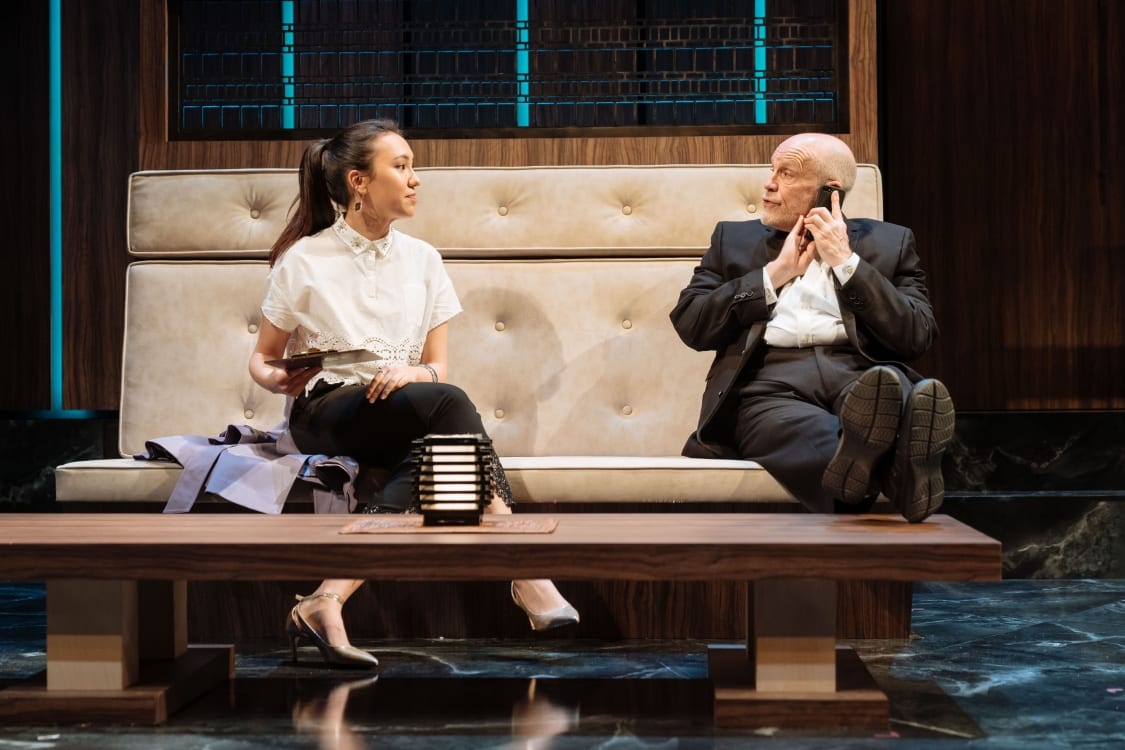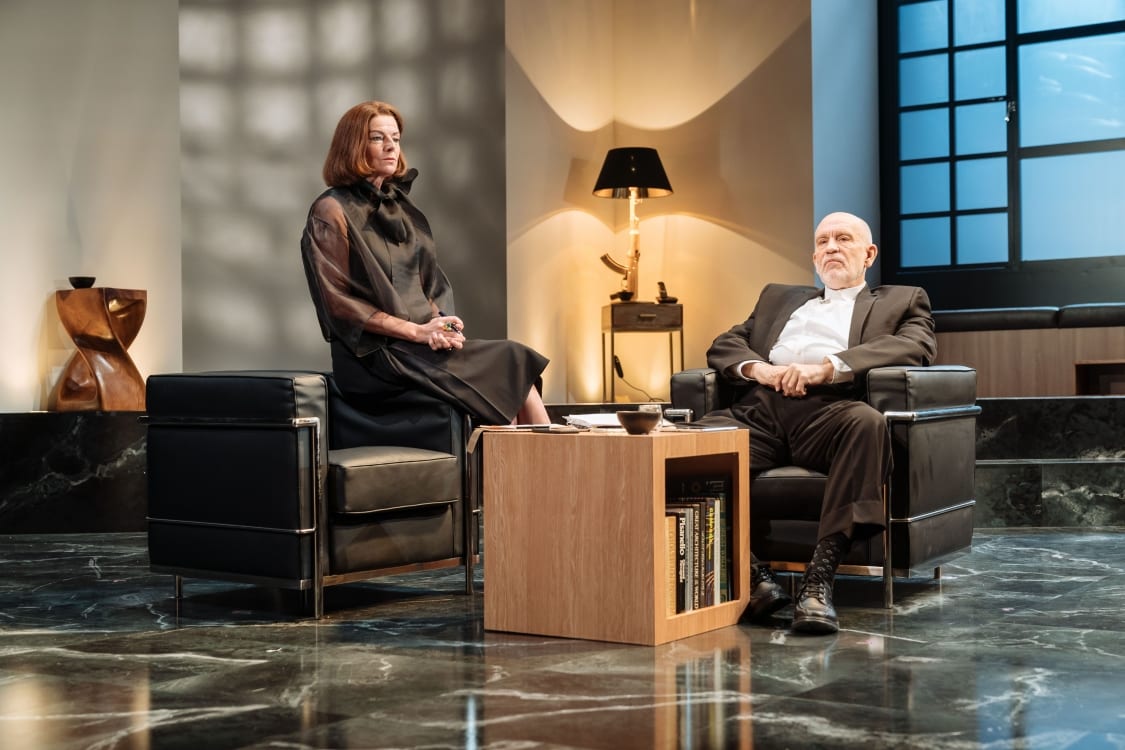It’s difficult to know while I’m watching Bitter Wheat whether I just hate the characters or hate the play. It surrounds a Hollywood mogul, Barney Fein, who reeks of Harvey Weinstein. He initially attempts to seduce and then sexually assaults actress Yung Kim Li in exchange for making her a star. Advertised as being ‘funnier than The Iceman Cometh – [with] more chaos than Richard III’, it positively flaunts insensitivity in its treatment of the topic. As a somewhat hollow play that doesn’t seem to be too invested in inspiring societal change, it leaves me feeling pretty hollow too.

Abuse of power and resulting exploitation are topics that must be discussed if we are to move into a culture where people feel comfortable calling it out – but that’s precisely the issue with Bitter Wheat. The script feels thin and plays off like a newsreel without offering any deeper commentary or scope for discussion and debate. It’s a play about a disgusting man and that’s pretty much as far as it goes – casting a shallow glance over him, and featuring the actress almost as a cameo character.
John Malkovich is good as Barney – his distinctive economy of expression, both facially and vocally, is effective in capturing the power bubble which his sleazy, callous character has found comfortable ease in. Malkovich’s celebrity status adds an interesting layer to the status difference between the characters, as he acts opposite a relative newcomer – Ioanna Kimbook, who is making her West End debut and is brilliantly assured in her assertive role as the actress Yung Kim Li.
The play works as a social mirror by showcasing Barney’s horrifically unchallenged confidence in the lead up to, during, and even after, the assault, and the desensitised egomania fuelled by his influence in Hollywood. The play revolves around this character – and nothing changes for him. We’re told he’s facing charges pressed by Li, but when they next meet, he’s just been sent a script and his mind is already working on that, casting Li in the lead role.
David Mamet successfully shows the audience how unaffected powerful people are by the devastation they leave behind. But since the play goes no deeper than this, it simply doesn’t make for good or interesting theatre. It is effective in manipulating darkly comic lines to make the audience laugh when it is inappropriate to do so, and perhaps reflect briefly on their reaction. But there is nothing further. In simply offering a rather superficial take on a reality that has recently been opened up to public gaze by the press and above all by courageous victims of abuse, it seems to trivialise the issues without even sparking discussion about them.

At a time when the creative industries are in the spotlight for their long-standing complacency towards brutal sexism, it isn’t enough to create a play about this issue in which the audience is just a fly on the wall. As an extraordinarily successful (male) playwright, Mamet is privileged to have a powerful platform that is capable of inspiring real change. He could have used the opportunity of the extensive press coverage of sexual exploitation to make the audience think in new ways about their own attitudes and the social structures that perpetuate misogyny. Instead, he simply seems to ride on the coattails of controversy by engaging the audience in following a sexual assault and the entertaining spectacle of an all-too-familiar society in which the man gets away with it.

